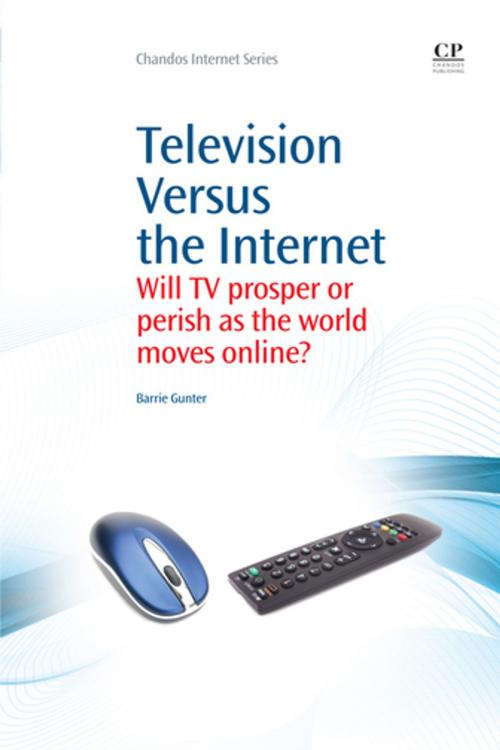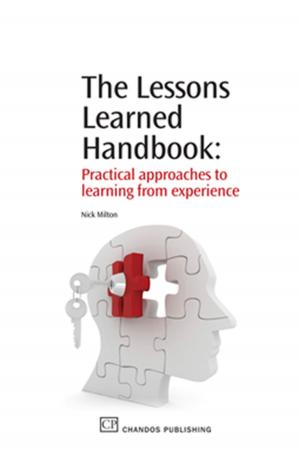Television Versus the Internet
Will TV Prosper or Perish as the World Moves Online?
Nonfiction, Entertainment, Television, Performing Arts| Author: | Barrie Gunter | ISBN: | 9781780631660 |
| Publisher: | Elsevier Science | Publication: | September 1, 2010 |
| Imprint: | Chandos Publishing | Language: | English |
| Author: | Barrie Gunter |
| ISBN: | 9781780631660 |
| Publisher: | Elsevier Science |
| Publication: | September 1, 2010 |
| Imprint: | Chandos Publishing |
| Language: | English |
This book will explore the questions raised by the technological developments that have encouraged the multiplication of TV channels. TV is moving through a period of rapid change. Governments around the world are switching from analogue to digital forms of transmission to further expand the amount of content that TV signals can carry. At the same time, competition for eyeballs has also grown from outside that traditional marketplace with the emergence of the Internet. The roll-out of broadband and increased bandwidth has had the greatest impact on television because online technology can readily convey the same content. All these changes have created a great deal more competition for viewers within the traditional TV marketplace. The Internet has proven to be especially popular with young people who have adopted its applications to a far greater extent than their elders, though even the latter have now begun to take up online activities in significant numbers. Are these audiences the same? Do people make a choice between these two media or do they use them both at different times and for different reasons? Can television utilise the Internet in profitable ways to enhance its market position? Will television have to evolve from its current state to provide the kinds of content reception services to which people have become accustomed in the online world? If it does need to change to survive, will this nevertheless mean a radical new configuration of content and the disappearance of ‘channels’ with fixed, pre-determined programme schedules?
- Examines the implications of new interactive communications technologies for the way people will use television in the future
- Presents an analysis of changing styles of television viewing and changing orientations towards television
- Examines the growing importance of the broadband internet as a source of information and entertainment
This book will explore the questions raised by the technological developments that have encouraged the multiplication of TV channels. TV is moving through a period of rapid change. Governments around the world are switching from analogue to digital forms of transmission to further expand the amount of content that TV signals can carry. At the same time, competition for eyeballs has also grown from outside that traditional marketplace with the emergence of the Internet. The roll-out of broadband and increased bandwidth has had the greatest impact on television because online technology can readily convey the same content. All these changes have created a great deal more competition for viewers within the traditional TV marketplace. The Internet has proven to be especially popular with young people who have adopted its applications to a far greater extent than their elders, though even the latter have now begun to take up online activities in significant numbers. Are these audiences the same? Do people make a choice between these two media or do they use them both at different times and for different reasons? Can television utilise the Internet in profitable ways to enhance its market position? Will television have to evolve from its current state to provide the kinds of content reception services to which people have become accustomed in the online world? If it does need to change to survive, will this nevertheless mean a radical new configuration of content and the disappearance of ‘channels’ with fixed, pre-determined programme schedules?
- Examines the implications of new interactive communications technologies for the way people will use television in the future
- Presents an analysis of changing styles of television viewing and changing orientations towards television
- Examines the growing importance of the broadband internet as a source of information and entertainment















